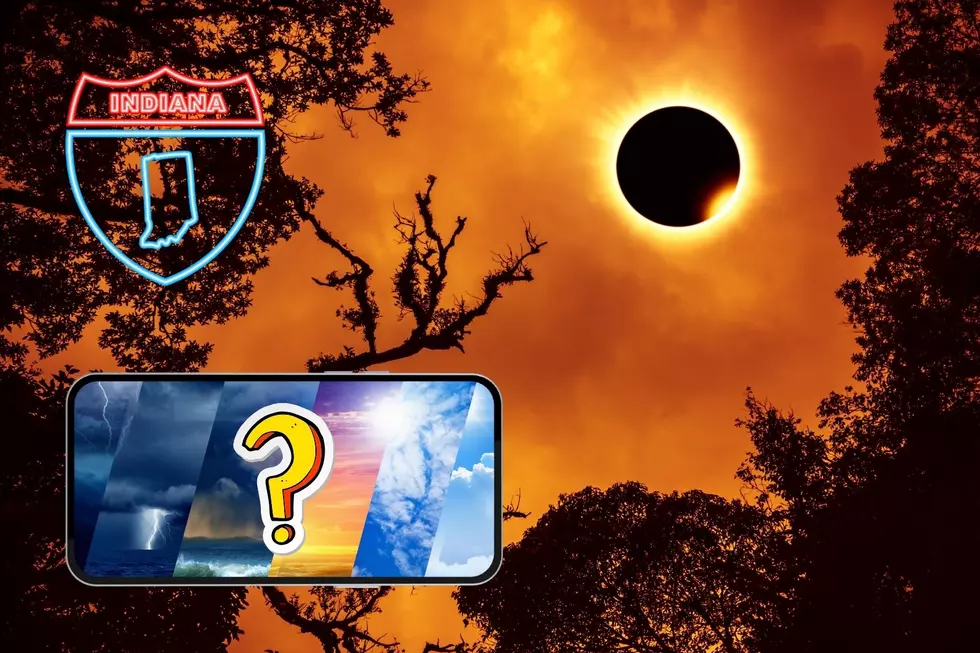
What’s the Indiana Weather Outlook for Total Eclipse Monday?
THEM: "Did you see that meteor shower?" ME: "No, there was too much cloud cover." THEM: "Were you able to see the Northern Lights?" ME: "No, it was raining."
The preceding interchanges were sample conversations that might happen after an extraordinary astronomical event obscured by stubborn weather. So I can't help but wonder what meteorological questions we'll pose after Monday's total solar eclipse.
Will Mother Nature Give Indiana Eclipse Viewers Good News?
We can cast all the "spells" we want or exercise certain superstitions, but Mother Nature will have the last word. We just hope those words aren't "mostly cloudy skies." So let's refer to our go-between, Eyewitness News Chief Meteorologist Wayne Hart who tells a tale of storm systems SURROUNDING Monday's rare event. But "surrounding" truly is the keyword, as you'll see here:
For whatever reason, I've been blissfully going along and getting ready for an eye-popping experience on April 8th and never considered that the weather might have other things in mind. Pretty silly, huh?
Anxious Travelers Are Hoping for Good Weather
What isn't so silly to many travelers is the thought that the reservations they made at campgrounds or hotels for the big event might be wasted if they get there and can't see anything. And by the way, I love the new nickname given to these folks by USA Today. They've called them "totality tourists" and suggest they may be anxious, especially those traveling long distances to witness the phenomenon.
But based on Wayne Hart's outlook above, it does look like those viewing the eclipse in Indiana, Illinois, and Missouri will have the best look. The Indiana Department of Natural Resources even offers multiple lists of locations and the optimal time frames for getting the best view.
So far, so good, but it's the weather that could change at the drop of a hat.
10 Worst Fictional Planets to Live On
Sun's Out, Shades On: A Look Back at Eclipses Through the Ages
Gallery Credit: Meg Dowdy
More From WKDQ-FM









